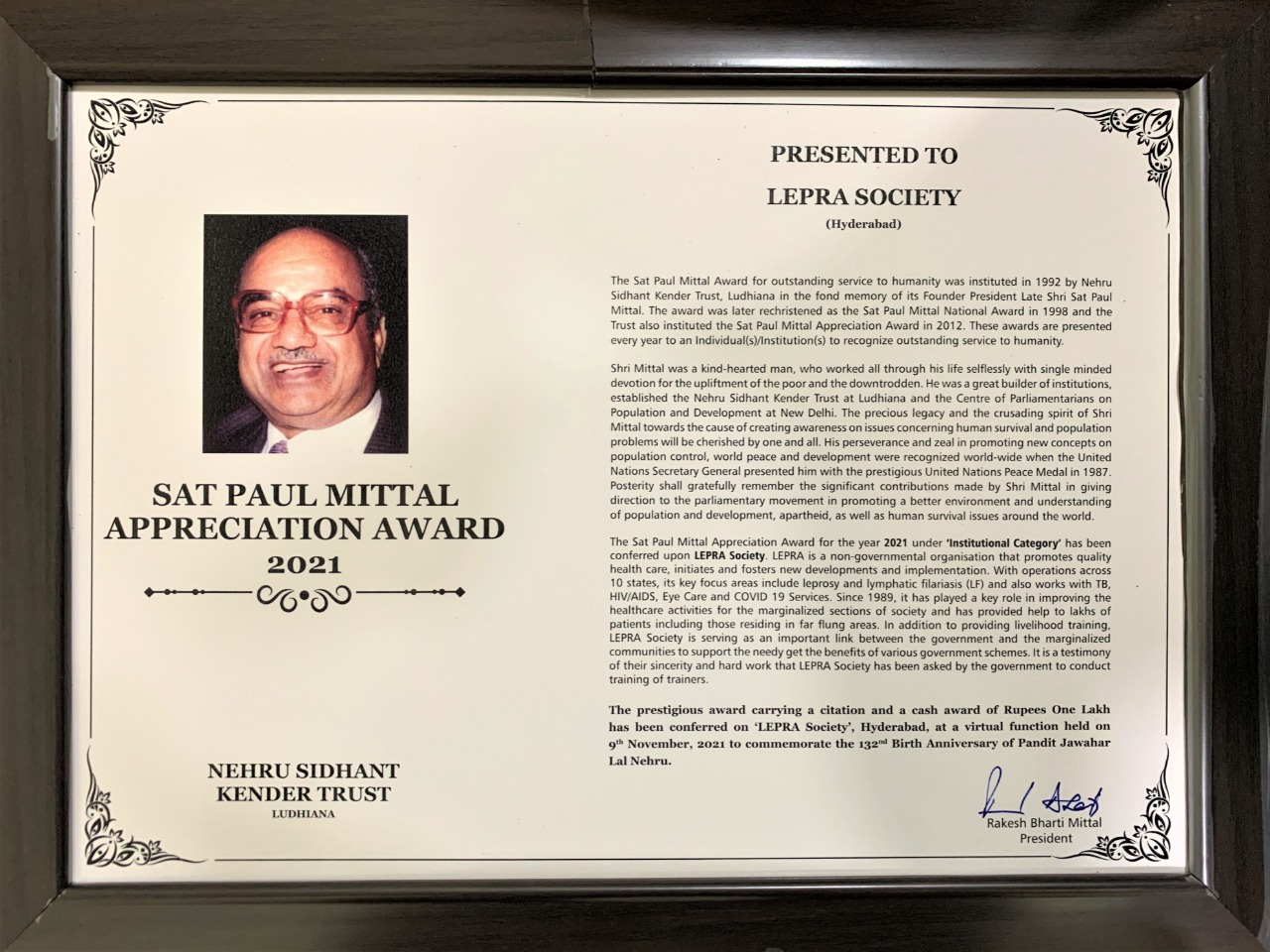Our work at LEPRA is driven by our focus on leprosy, with the sole purpose of enabling children, women, and men affected by leprosy and other neglected diseases to transform their lives and overcome poverty and prejudice.
Leprosy is a neglected and communicable disease that is curable. However, if undetected or ignored, affected persons face a high risk of disabilities, medical complications, and ulcers. Also, the affected face stigma, social exclusion, mental health issues, and high economic costs – both direct (related to treatment and rehabilitation) and indirect (loss of income).
In 1989, one of the first operations undertaken by LEPRA was extending support to the National Leprosy Eradication Programme (NLEP) through the management of Multidrug Therapy (MDT) administration, in a total of five districts from Andhra Pradesh (AP), Karnataka and Odisha states. Gradually, we expanded operations to leprosy control with eleven projects, covering thirteen high endemic districts in the states of AP and Odisha.
In 2005, leprosy was considered eliminated in India (defined as a prevalence of less than 1 per 10,000) and as a result, the disease was dropped from health agendas and resources drastically dwindled. Expertise in leprosy amongst health professionals progressively declined and surveillance/control activities weakened. More than a decade later, several indicators suggest that leprosy remains an important public health issue and that transmission is high. According to the Indian Council of Medical Research (ICMR), current government programmes miss around 50 percent of new leprosy cases. The mid-term evaluation report of the National Leprosy Eradication Programme (NLEP) conducted by the Central Leprosy Division and the WHO revealed that the government efforts did not match the level and intensity of the disease burden.
Our leprosy programmes cover 156 districts in Telangana, Andhra Pradesh, Bihar, Jharkhand, Odisha, Madhya Pradesh (MP), Uttar Pradesh, Chhattisgarh and Delhi states. The cross-cutting themes of our programmes include system strengthening, combined approaches, empowerment, equity, advocacy, gender and water, sanitation & hygiene (WASH).
The organisation has gained more than 25 years of experience in implementing its core leprosy programmes related to case detection, prevention of disabilities, disability care, rehabilitation, inclusion, awareness, advocacy, and community mobilisation. We are providing state-level technical support to NLEP in Telangana, MP, and Odisha along with district-level support in Bihar. To fill the gaps in the leprosy programme after integration, LEPRA is implementing 25 referral centres (RCs) to provide specialised leprosy services at the district level. We signed a MoU with national and state-level forums of leprosy-affected persons to advocate against stigma and discrimination.

